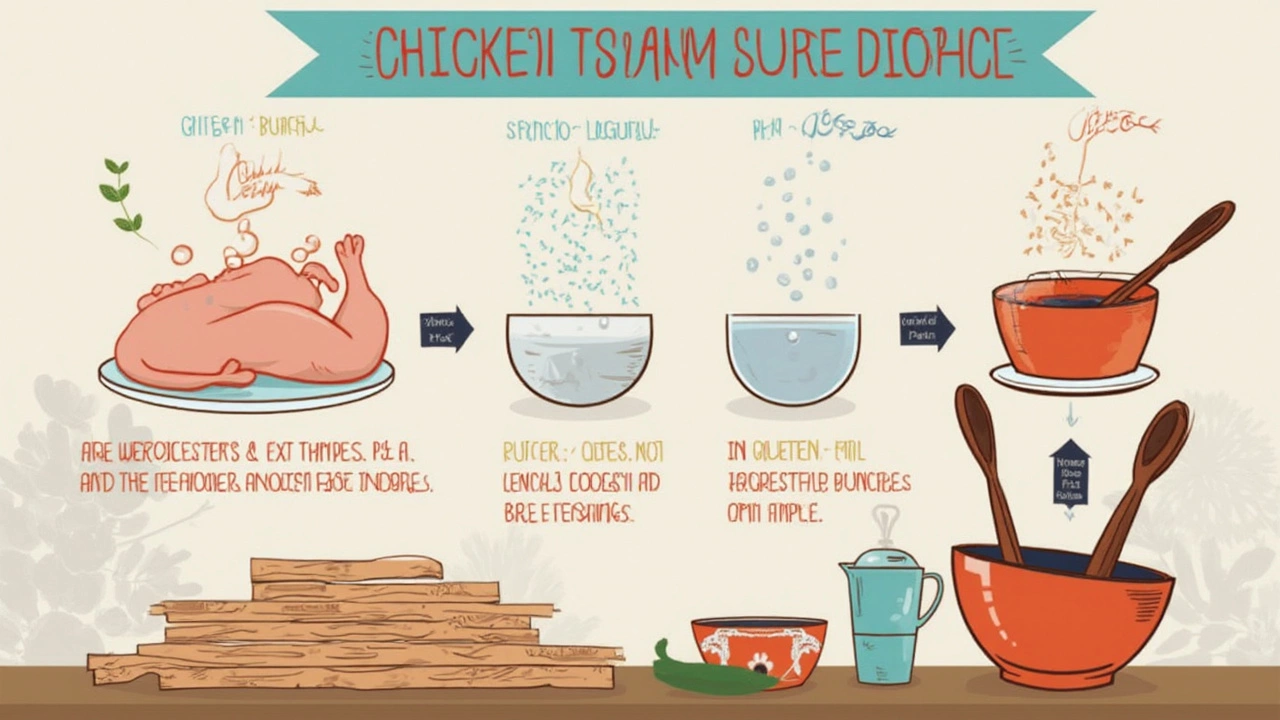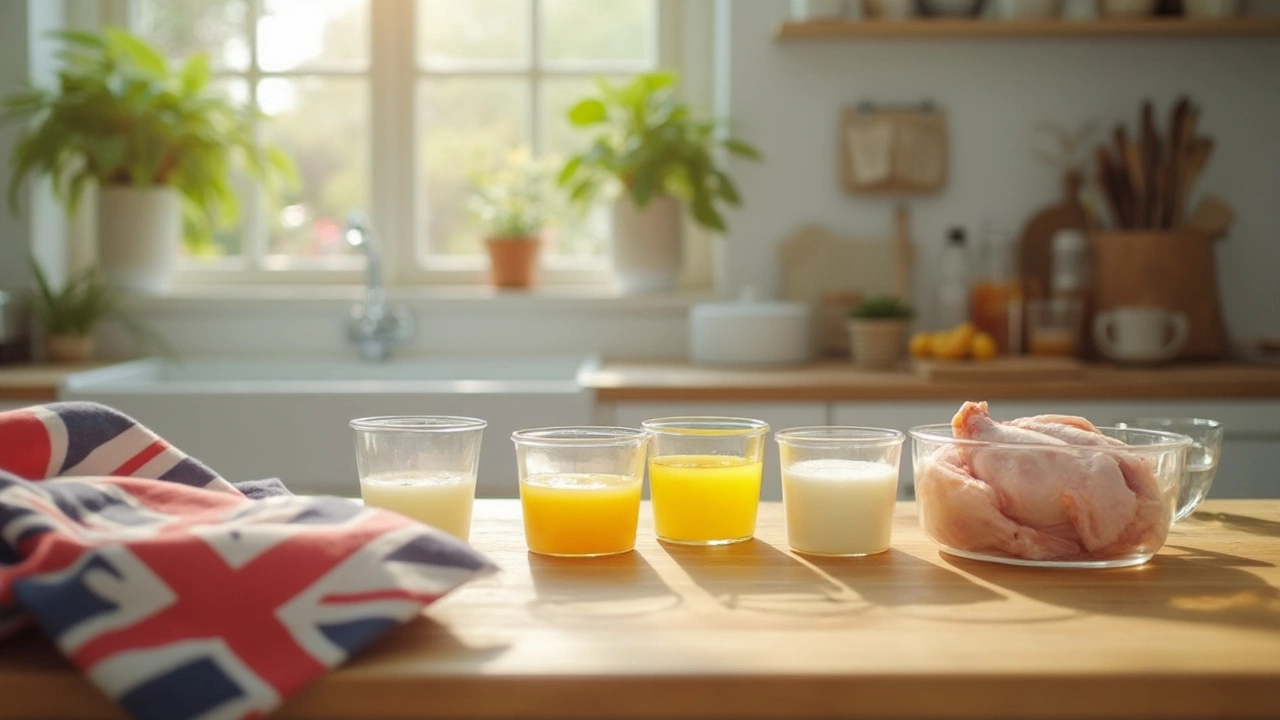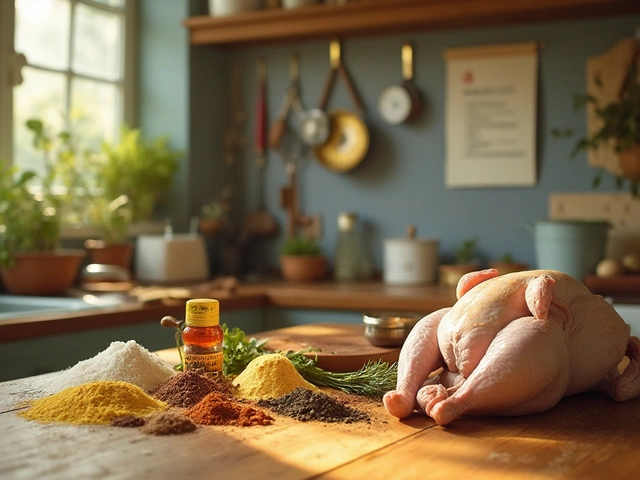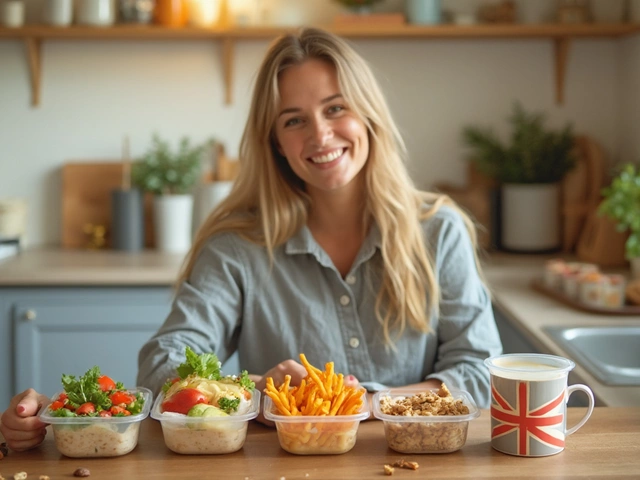If you’ve ever bitten into a tough, rubbery piece of chicken, you know how disappointing that is—especially when you’ve put in the effort to cook dinner. The real game-changer? The right kind of liquid for tenderizing. Not every marinade ingredient you see on TikTok or read about in chef blogs actually makes a difference. The truth is, certain liquids break down chicken’s muscle fibers and proteins way more effectively than others, and that’s what gives you that perfect, juicy bite.
The best part: you don’t need anything fancy. Odds are, some of the best ingredients for tenderizing chicken are already sitting in your fridge or pantry. Whether you’re making grilled chicken breasts, fried drumsticks, or even prepping chicken for a stir-fry, using the right tenderizing liquid can take your meals from just okay to straight-up mouthwatering. Before you start dumping random sauces into a bowl, let’s get real about what actually works—and what’s just kitchen hype.
- Why Tenderizing Chicken Matters
- Acidic Liquids: The Classic Tenderizers
- Dairy-Based Marinades: The Secret Advantage
- Alternative Liquids to Try (and What to Skip)
- Tenderizing Mistakes You Can Avoid
Why Tenderizing Chicken Matters
When you’re cooking chicken, getting it juicy but not mushy can feel like a magic trick. It all boils down to how you treat the meat before it hits the pan or grill. Chicken breast, in particular, is super lean, so it dries out fast if you don’t take steps to tenderize it. That’s why so many people end up with something that feels like stringy cardboard instead of a delicious meal.
Here’s the science: chicken muscle fibers are held together by protein. Without some help, these proteins stay tough, especially if you cook the meat a little too long. Liquid tenderizers work by either breaking down those fibers (if they’re acidic, like lemon juice) or by making the proteins loosen up so moisture stays in (if you use things like buttermilk or yogurt).
- Acids help break down muscle fibers and connective tissue, making chicken easier to chew.
- Dairy-based liquids, like yogurt and buttermilk, have mild acids and enzymes that gently loosen up the meat without ruining the texture.
- Brining with salt water isn’t exactly a tenderizer, but it does help chicken hang onto moisture, so it tastes better after you cook it.
Why bother with all this? Over 60% of home cooks say dry, chewy chicken is their biggest complaint with recipes. A simple soak in the right liquid tenderizer can change all that with little effort. It also means you don’t have to drown your chicken in sauce just to keep it edible. You get meat that stands on its own—tender, juicy, and easy to eat.
So, if you want better chicken at home, it’s not about fancy gadgets or complicated techniques. It’s about picking the right liquid tenderizer and letting it do the work.
Acidic Liquids: The Classic Tenderizers
If you’ve hunted for a liquid tenderizer for chicken, you’ve definitely run into acidic options. It’s not just a cooking myth—acids really do work. Here’s why: acids like vinegar, lemon juice, and even buttermilk cause the protein in chicken to unravel, making it softer and way more enjoyable to eat.
The science is simple. Chicken is made of muscle fibers stuck together with proteins and connective tissue. Acid breaks those proteins apart, kind of like untying a knot. But go too far and the chicken can turn mushy or chalky, so timing matters.
- Lemon juice: Packs a solid punch and brightens up the flavor. Works in as little as 30 minutes.
- Vinegar: White vinegar or apple cider vinegar does the trick but adds a sharper flavor. Keep marinating short, about 20-60 minutes.
- Buttermilk: Kind of a hybrid—slightly acidic, plus it’s got dairy benefits. We’ll get into that later, but it’s popular for fried chicken because it keeps everything juicy.
- Yogurt: Used a lot in Indian and Middle Eastern cooking, yogurt adds tang and helps chicken stay moist while breaking down proteins.
Here’s a quick look at how long to let chicken soak in each liquid:
| Acidic Liquid | Marinating Time |
|---|---|
| Lemon Juice | 30 min - 2 hours |
| Vinegar | 20 min - 1 hour |
| Buttermilk | 2 - 12 hours |
| Yogurt | 2 - 8 hours |
Don’t forget: acid breaks down the outside first. That means a thin cut or cubes will get tender way faster than a thick chicken breast. Also, always toss out used marinade. You don’t want raw chicken bacteria sticking around.
Using the right acidic tenderizer in your chicken recipes can make all the difference. It’s easy, cheap, and actually makes chicken tastier—not just softer.

Dairy-Based Marinades: The Secret Advantage
Most folks reach for vinegar or citrus to tenderize chicken, but here’s something most don’t know: dairy-based marinades work even better. Think yogurt, buttermilk, or kefir—these aren’t just for breakfast or smoothies. They’re mild, but pack a punch when it comes to breaking down chicken fibers. The reason? They use gentle lactic acid and enzymes that tenderize meat without making it mushy.
Ever wondered why fried chicken from the South is so juicy? Buttermilk is often the secret. Soaking chicken in buttermilk doesn’t just make it tender, it also helps the seasoning stick if you’re breading it. Yogurt, especially plain and unsweetened, works great for grilling or roasting, giving you both flavor and tenderness without overpowering the chicken's taste.
Here’s how to use dairy-based marinades right:
- Choose your base: Plain yogurt, buttermilk, or kefir. Greek yogurt for thicker coating, buttermilk for soaking.
- Add spices: Toss in salt, pepper, garlic powder, paprika, or whatever flavors you’re craving.
- Don’t overdo it: Marinating for 2-6 hours is ideal. Anything over 8 hours and the chicken can get a little mushy.
If you want to see how dairy stacks up against other liquids, check out this quick comparison:
| Marinade | Acid Strength | Time to Tenderize | Risk of Over-marinating |
|---|---|---|---|
| Buttermilk | Mild | 2-6 hours | Low |
| Yogurt | Mild | 2-6 hours | Low |
| Lemon Juice | Strong | 30 min - 2 hours | High |
| Vinegar | Strong | 30 min - 2 hours | High |
Bottom line: If you want juicy, flavorful chicken with less risk of making it stringy or dry, give dairy-based marinades a shot. They fit into just about any chicken recipe and don’t overpower the taste—just pure, juicy goodness every time.
Alternative Liquids to Try (and What to Skip)
Okay, so we all know lemon juice and buttermilk can work wonders. But what about the other stuff in your kitchen that people keep recommending as a liquid tenderizer? Some are seriously worth trying, while others just waste your time—or worse, mess up your chicken.
Here’s what you can experiment with:
- Yogurt: Similar to buttermilk, plain yogurt breaks down proteins gently. A few hours in yogurt can make chicken super soft, plus it sticks well, so the seasoning actually stays put.
- Pineapple juice: Raw pineapple juice contains bromelain, an enzyme that really does tenderize meat. But don’t soak chicken too long; it can get mushy after just an hour or two.
- Cola or soda: It sounds weird, but the acidity and sugar can break down tough fibers, and it gives a surprisingly good flavor. Marinate for 1–2 hours max.
- Beer: The acids and enzymes in beer do help loosen up muscle fibers a bit, and it’s a classic for marinating wings before grilling. Just don’t expect miracles—it’s better for flavor than major tenderizing.
- Vinegar: Apple cider vinegar or even plain white vinegar can work in a pinch, but don’t overdo it. More than a couple of hours will turn the texture rubbery.
Not all ideas you read online about cooking chicken are actually good—so watch out for these:
- Soy sauce has salt and some acid, but by itself, it won’t do much in the way of softening. Use it for flavor, not tenderizing.
- Oils (like olive oil) are tasty but don’t break anything down. They’re mixers for marinades, but useless alone as a meat tenderizing liquid.
- Water is just a no-go. It doesn’t do a thing besides dilute your seasonings.
Curious how long to soak? Here’s a basic guide, so you don’t wreck your chicken:
| Liquid | Typical Marinate Time |
|---|---|
| Yogurt | 2–8 hours |
| Pineapple juice | 1–2 hours max |
| Cola/Soda | 1–2 hours |
| Beer | 2–4 hours |
| Vinegar | 30 min–2 hours |
The key is not to overdo it. Too much time and some of these liquid hacks will turn your chicken mushy or weirdly chewy. Stick to the suggestions above, and you’ll master juicy, tender chicken in no time—without falling for every food trend.

Tenderizing Mistakes You Can Avoid
If you want your chicken to come out juicy and flavorful, there are a few common goof-ups you really want to skip. It’s easy to get caught up in fancy liquid tenderizer marinades, but even seasoned home cooks make these mistakes. Let’s break down where folks usually go sideways.
- Marinating Too Long in Acid: If you leave chicken in something super acidic, like lemon juice or vinegar, for more than 2 to 4 hours, you’ll turn it mushy or tough. The acid starts to break down proteins fast—so don’t leave it overnight unless you want weird texture. Stick to the clock if you use strong acids for your chicken recipes.
- Using Only Oil-Based Liquids: Oil helps carry flavors but won’t tenderize meat on its own. You need a bit of acid, dairy (like buttermilk), or something enzymatic. Marinating in olive oil alone? You’ll just have oily, still-tough chicken.
- Missing the Salt: Salt isn’t just for seasoning. Brining or adding salt to your marinade changes the chicken’s structure a bit, helping it hold onto water. Skip the salt, and you lose out on juiciness.
- Not Patting Chicken Dry Before Cooking: If you slap wet, marinated chicken straight into a pan, you’ll steam instead of sear. That ruins the texture and color you want. Always use paper towels to dry off extra liquid before hitting the heat.
- Reusing Marinade as a Sauce (Unsafe!): Never pour leftover marinade over cooked chicken unless you boil it first. Raw marinade = bacteria risk.
Here’s some hard data from a simple kitchen trial:
| Marinade Base | Time Tenderized | Result |
|---|---|---|
| Lemon Juice | 1 hour | Juicy, flavorful |
| Lemon Juice | 8 hours | Mushy, weird texture |
| Buttermilk | 8 hours | Super-tender, not mushy |
| Oil Only | 8 hours | No change, bland |
One more tip: don’t skip the temperature check. Cook chicken to 165°F (74°C)—undercooked chicken isn’t just a little gross, it’s unsafe. Using the right meat tenderizing liquid helps, but so does not overcooking.









Write a comment